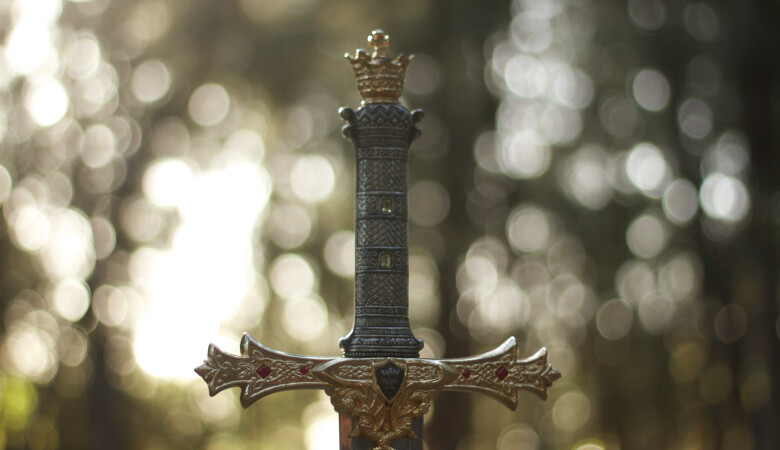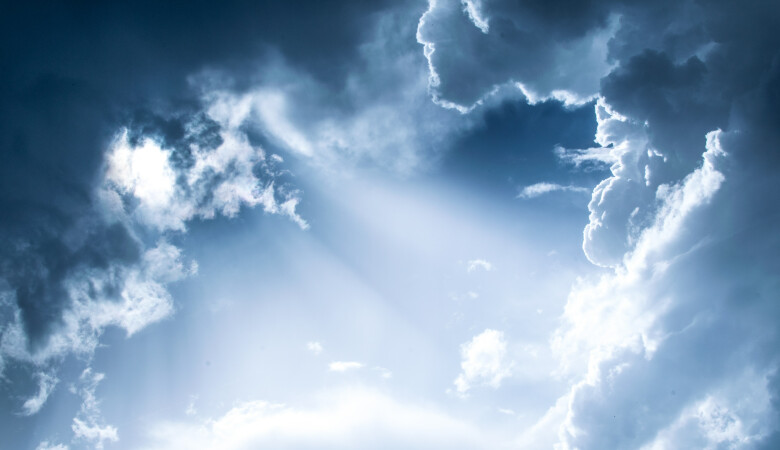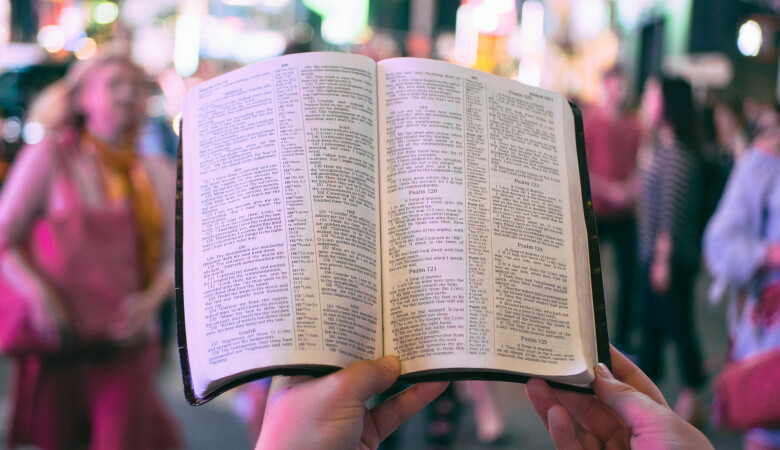The Life of Elijah - Week 8
July 21, 2002 | Andy Davis
1 Kings 19:1-8
War Against the Flesh, Boldness & Courage
Pastor Andy Davis preaches a verse-by-verse expository sermon on 1 Kings 19:1-8. The main subject of the sermon is Jezebel's threat to Elijah.
- SERMON TRANSCRIPT -
We're looking this evening at 1 King's 19, and this is the story of Elijah's flight to Mount Horeb. And it's really a pretty shocking story when you stop and think about it. I mean, all of a sudden there's a shocking transition from the heroic conflict at Mount Carmel and for all of the boldness and courage that he showed for his Lord God, and suddenly he wilts in the face of a single woman. All of a sudden he just becomes totally cowardly, really, and flees for his life. And I think this is a very instructive story for us as we look at it. Let's read in 1 King's 19:1-10 and we'll see how far we can get this evening. Beginning at verse 1,
Now Ahab told Jezebel everything that Elijah had done and how he had killed all the prophets with the sword. So Jezebel sent a messenger to Elijah saying, "May the gods deal with me, be it ever so severely, if by this time tomorrow I do not make your life like that of one of them.” Elijah was afraid and ran for his life. When he came to Beersheba in Judah, he left his servant there, while he himself went a day’s journey into the desert. He came to a broom tree and sat down under it and prayed that he might die. “I have had enough, LORD,” he said. “Take my life; I am no better than my ancestors.” Then he lay down under the tree and fell asleep. All at once an angel touched him and said, “Get up and eat.” He looked around, and there by his head was a cake of bread baked over hot coals, and a jar of water. He ate and drank and then lay down again. The angel of the Lord came back a second time and touched him saying, “Get up and eat, for the journey is too much for you.” So he got up and ate and drank. Strengthened by that food, he traveled 40 days and 40 nights until he reached Horeb, the mountain of God. There he went into a cave and spent the night. And the word of the Lord came to him: “What are you doing here, Elijah?” He replied, “I have been very zealous for the Lord God Almighty. The Israelites have rejected your covenant, broken down your altars, and put your prophets to death with the sword. I am the only one left, and now they are trying to kill me too."
Now as we look at this account, we see an incredible transition in Elijah. Now, he's been almost supernaturally bold and courageous up to this point. You think he's got to be almost like a whole other kind of human being who could do the kind of things that he's done. But we go from the mountaintop of glory down to the valley of despair. Chapter 18, Elijah had been focusing on God's glory, the glory of God's name, that's all that mattered to him, and also the salvation of his people. He was concerned about the glory of God and concerned about the welfare of his people. But in chapter 19, he's only concerned about himself. His focus zeros in at that point and he loses perspective. And yet as we look at this chapter, I think we see some incredible benefits for us to study, perhaps as much as the benefits that we've seen already in chapter 18.
One thing that I think it tells me right from the start is that again verifies the Bible as completely accurate and truthful, really having been written by God himself. What do I mean by that? Well, the Bible consistently exposes the weakness and failings of its heroes. Over and over in the biblical accounts, we get glimpses into the human frailties, the sinfulness and the weakness of some of the greatest servants of God. Epics of heroes never do this. Do they? They always want to exalt the individual, exalt the human person. And so they're going to hide the skeletons in the closet and lock them away. We don't really want to consider those things. That's what ordinary epics of heroes do. But you know, the fact of the matter is the real hero of the Bible is God himself. And the real truth is that all of us have sinned and fall short of the glory of God. And so even Elijah, a man just like us, it says in James: 5, a man of like passions just like us, was a sinner in need of salvation. The real hero of every biblical account is God himself. So just when you are thinking that Elijah's floating away from us like a balloon without a string, his DNA must have been different than ours, right? He is an ordinary human being. And so we in fact don't get off the hook that easily, do we? If he's really just an ordinary, sinful human being, then how did he accomplish all of these things? Well, he was faithful to the Lord his God. He trusted in the Lord his God. He was willing to obey the Lord his God, no matter what it cost him. And so we're right back on the hook to need to be faithful and obedient. I'm not saying that God's going to bring you like John Patton to a showdown with some pagan priests, cannibal priests, or like Elijah to Mount Carmel where you face off against 450 prophets of Baal. It may be enough for you just to witness to somebody sitting next to you on the plane the next time you do. But the fact of the matter is: we're not off the hook. Elijah was a man just like us, a sinner, a frail human being, and yet God used him in a mighty way.
"Even Elijah, a man just like us, it says in James: 5, a man of like passions just like us, was a sinner in need of salvation. The real hero of every biblical account is God himself."
We look across the Scripture and we see this again and again, don't we? You look at Noah, for example. Noah built the arc in faithfulness to God, and yet it was Noah that got drunk after he came off the arc. You look at Abraham, Abraham was a man of faith. He was a father of many nations, and yet he lied about his wife, Sarah, just to save his own life. Moses was a mighty leader of God's people. And yet Moses, just through a temper tantrum, basically loses the right and privilege to enter the Promised Land. David was a man after God's own heart. And you know what he did? He committed adultery with Bathsheba and killed Uriah, her husband. Jonah, courageous prophet of God willing to stand in front of the Ninevites, in front of the Assyrian empire and preach the word of God. A courageous man, but just openly flagrantly rebellious against God. The Scripture never conceals the sins of its heroes.
And then when you get into the New Testament, what do you see? You see the disciples, the apostles are traveling around with Christ. And what a lot they are? They're never quite getting it, do they? They never really understand what Jesus is doing. And furthermore, I mean this is the incredible thing. The night before Jesus dies on the cross, the night before he is to lay down his life for them, they're up in the upper room arguing about which of them is greatest in the kingdom. What a shameful thing. And yet, how do we know about it? Because they wrote about it themselves. They want us to know that they also were sinners saved by grace. And so Elijah's failure here helps us to realize again, the truthfulness of the Bible's history.
Now in verse 46 of chapter 18, where we left off last time, it said literally the hand of the Lord was on Elijah and he girded up his loins and outran Ahab to Jezreel. That's the NAS translation I like better than the NIV. Because the hand of the Lord is on him, there was a personal empowerment from God and he had the ability to outrun a horse and chariot all the way to Jezreel. And so he gets there ahead of Ahab. But the question you ask when we get to chapter 19 is what did he make the run for? Because as soon as he gets there, he turns around and runs away. The hand of the Lord came on him powerfully, gave him energy to get to Jezreel first. There had to be some reason for that. God doesn't do things for no reason. And yet as soon as he gets there, he turns around and turns tail and runs. Now, I don't think he ran with the hand of the Lord on him running away. Not the way he did going to Jezreel. The mission was not accomplished. Elijah abandoned his post.
Now, I have to tell you, it's with fear and trembling that I even go into this kind of thing because I can't carry Elijah’s shoes. But we have to be honest, God had something intended for him in Jezreel, and he did not stay to his post. He did not stay where he was assigned. And so we have a problem. Now, Ahab finally gets there to Jezreel and he goes to his wife Jezebel. Now Jezebel's an interesting character. Remember that her father was Ethbaal, the king of the Sidonians. She was a pagan idolater. She led Israel through Ahab and all this wickedness. Now, she must have been looking out her window wondering what the outcome was. I'm sure she never wanted this whole contest with the prophets of Baal because she had the upper hand anyway. She only stood to lose. But then she's looking out the window and she must feel that somehow Baal has been powerful enough to conquer this one troublesome man who Ahab calls the troubler of Israel. And all of a sudden she sees storm clouds and it starts to rain. "Finally, we have the rain now that Elijah's dead," so she thinks. But Ahab comes with the bad news in verse 1, “Ahab told Jezebel everything that Elijah had done and how he had killed all the prophets with the sword.” Now, we've mentioned this before, but this is incredibly troubling to me. Why is it troubling? Because you notice that there's no mention of God here at all. There's no mention of the Lord God Almighty. Who is Ahab focusing on as he makes his report? “Look at what Elijah did.” Let me ask you a question. Did Elijah bring down fire from heaven and ignite that sacrifice? He most certainly did not. Did Elijah cause the rain to fall from those clouds? Most certainly he did not. So why does Ahab only talk about Elijah? Well, I'll tell you why. Because in Psalm 10:4 it says, "In his pride, the wicked does not seek God. In all his thoughts, there is no room for God." There's no room for God in Ahab's mind. And so he's got to focus down... However much it doesn't make any sense, he's got to focus on the human. He's got to focus on Elijah and say, "Look what Elijah did." And it's so tragic, really.
This man was a king of Israel. He was a descendant of Abraham. Three and a half years of drought had not brought him to repentance. Famine had not brought him to repentance. The sudden reappearance of Elijah and his powerful preaching had not brought him to repentance. The fire from heaven had not brought him to repentance. Elijah's gentle humility saying, "Why don't you go sit down and eat while I go and pray for rain," had not brought him to repentance. God's gift of rain after three and a half years, supernatural, had not brought him to repentance. Why do I underscore this? Nothing will bring the wicked to repentance, but the direct act of the grace of God. That's how hard our hearts are. And the thing we should rejoice over is that we got saved. How did you get saved? How did you repent? "Can a leopard change his spots or an Ethiopian his skin? Neither can you who are evil choose to do right." That's what Jeremiah said. We can't change our hearts, but God is gracious to grant us, the Bible says, repentance. And so all of these incentives to repentance have failed.
"Nothing will bring the wicked to repentance, but the direct act of the grace of God. That's how hard our hearts are."
Now, Ahab, interestingly enough, I think is not really this hardened Baal worshiper. I don't really think he cared about Baal. I think he was essential materialist. Why do I say that? Because after the display of the prophets of Baal getting slaughtered, right? And God being proved to be the true and only God, what did Ahab do? He sat down and ate a meal. His God was his stomach not Baal. And so all he cared about was that his donkeys had enough grass to chew on and that he had a wife and a comfortable life, but Jezebel was different, you see. Jezebel was a hardcore worshiper of Baal. She was a hard woman. She was a sinful and wicked woman. In verse 2, “Jezebel sent a messenger to Elijah to say, ‘May the gods deal with me, be it ever so severely, if by this time tomorrow I do not make your life like one of them.’” Now, who's she referring to? Well, the prophets of Baal. She's heard that 450 of them have been slaughtered by Elijah and she sends him a warning and says, "By this time tomorrow you will be dead." And so this is the hardness of Jezebel. Jezebel the very pattern of wickedness. Revelation 2:20 to the church of Thyatira, the Holy Spirit mentions Jezebel by name as the symbol of a godless prophetess, a woman who's leading God's servants into sexual immorality. And so Jezebel, a very picture of evil. But as you look at her, she's very prideful and presumptuous, isn't she? "May the gods deal with me, be it ever so severely." That's an Old Testament oath. She's taking an oath. "If by this time tomorrow you're not dead." Reminds me of the men who took an oath not to eat anything more until they killed Paul. Remember in the book of Acts? I think they ended up breaking that oath as it went on month after month, you know? Paul was able to escape because one of his little nephews gets him out of jail in time. And so, so much for that oath that went out the window.
But Jezebel is very presumptuous here, isn't she? Now what do I mean by presumptuous? She assumes that she will be alive tomorrow. Edwards in “Sinners in the Hands of an Angry God,” pictures the wrath of God like a taut bow and arrow pointing right at the heart of the wicked. And she's presuming that God will allow her to live her wicked life one more day. And so it says in the book of James, "Now listen, you who say, 'Today or tomorrow we will go to this or that city, spend a year there, carry on business and make money.' Why, you do not even know what will happen tomorrow. What is your life? You are a mist that appears for a little while and then vanishes. Instead, you ought to say, 'If the Lord wills, we will live and do this and that.' As it is, you boast and brag. All such boasting is evil." Do you hear that? Presumptuous. It's presumptuous for the Lord's people to say, "Tomorrow or next year we'll do this or that." We should say, "If the Lord wills, we will live and do this or that." Jezebel all the more, had no reason to assume that God would allow her to live even one more day. And so she's presumptuous and she makes an oath, "May that gods deal with me, be it ever so severely if I do not make your life like one of them."
Now, Jezebel had terrifying power. She had slaughtered every one of the Lord's servants that she could get her hands on. She had power and she was in that sense, terrifying. She's very, very high-handed here against the Lord God. She hates God, but she can't get at God. So she's got to persecute God's servant, Elijah. She's got to attack him instead. Just the very same way that Satan can't get at God, so he is got to attack us. But here's the beauty of it. I just love this. It says in Proverbs 21:1, "The king's heart is in the hands of the Lord. He directs it like a watercourse whichever way he chooses." Well, could we extend that for a queen as well? I think so. And so what do I mean? Well, why didn't she just kill him? Why the threat? Why the boast? Why didn't she just send a guy to kill him right away? And so she makes the boast and Elijah's got time to run. Now, I don't think that that's what God intended, that Elijah would run. Rather that he would take himself to prayer, to fasting, to preparation. Perhaps this was the moment that Jezebel would be toppled for good. But I just think it's remarkable. Instead of just killing Elijah, she gives him a warning.
And so in verse 3, Elijah is afraid and runs for his life. And this really is the saddest part of all. I don't really have any idea what God intended in supernaturally bringing Elijah to Jezreel. We will never know because Elijah fled. We'll never find out. But could it be that that would've ended Baal worship in the northern kingdom of Israel at that point? I have no idea. If Jezebel had been brought to justice for the murders that she'd committed, perhaps everything would've been different. The key thing for Elijah here is that he did not wait for God's guidance. And that's been a consistent theme with Elijah, hasn't it? Remember after he made his original statement to Ahab that there would be no rain except at his word, very next thing, 1 King 17:2-3, just back one chapter, "Then the word of the Lord came to Elijah” verse 3, “Leave here, turn eastward and hide in the Kerith Ravine, east of the Jordan.'" That's very specific, isn't it? God said, "Turn eastward, go such and such a distance. You'll find a little brook. Stay there." When the brook dries up and the time comes, the word of the Lord comes a second time, verse 8-9, "The word of the Lord came to him: 'Go at once to Zarephath of Sidon and stay there. I have commanded a widow in that place to supply you with food.'" Again, very specific that he is to leave now the brook and go to Zarephath and there's a widow there. Chapter 18:1, "After many days, a long time, in the third year, the word of the LORD came to Elijah: 'Go and present yourself to Ahab, and I will send rain on the land.'" So three times God gives him specific guidance as to where he's to go and when he is to go there. All right? And then in chapter 18:36 in his great prayer, “At the time of sacrifice, the prophet Elijah stepped forward and prayed, 'O Lord, God of Abraham, Isaac and Israel, let it be known today that you are God in Israel and that I am your servant [listen] and have done all these things at your command.'" Well, that's what it means to be the servant to the Lord. “I don't move except that God tells me what to do.” And so at this moment, in effect, he ceased being the Lord servant. He was serving himself and so he fled for his life.
All of this, I think, this whole story about Elijah is to teach us to be humble and to trust no man. I mean, Elijah was a great man. He was on the Mount of Transfiguration with Moses, but he's still just a man. Isaiah 2:22 says, "Stop trusting in man who has but a breath in his nostrils. Of what account is he?" Don't trust in human beings. Don't trust even in great servants of God. Don't trust in godly pastors. Don't trust in any mentor that you may have, ultimately. Your trust is in the Lord because he's the only one who cannot fail you. But Elijah was a man just like us. We have a tendency all the time to trust in the flesh, don't we? Ultimately, we have a tendency of trusting ourselves. We're trusting in our own abilities. 2 Corinthians 1:8-9, "We do not want you to be uninformed, brothers," said Paul, "about the hardships we suffered in the province of Asia. We were under great pressure, far beyond our ability to endure, so that we despaired even of life. Indeed, in our hearts we felt the sentence of death. But this happened so that we might not rely on ourselves but on God, who raises the dead." What is he saying? "I got thrown in prison and beaten up and thought I would die the next day so that I would stop trusting in myself," said Paul. Now if Paul needed that kind of teaching, what do you need? What do I need? We trust too much in people. Ultimately, we trust too much in ourselves. It teaches us not to trust ultimately in ourselves or in people. It teaches us also to pray for godly leaders.
"Don't trust in any mentor that you may have, ultimately. Your trust is in the Lord because he's the only one who cannot fail you. "
Elijah was under spiritual attack here. We don't see the demonic realm, but my feeling is there's got to be a demonic aspect to what's going on here. You've got to pray for spiritual leaders. No one is safe. You're on a mountaintop of glory one minute and you're in the valley, the slough of despond the next. Just like that, it can change. And so you have to pray for your spiritual leaders. Pray for me that I would be faithful in my struggle against the world, the flesh, and the devil, but pray for each other too. Get people to pray for you. "If anyone thinks he stands, take heed lest he fall," 1 Corinthians 10:12, because it could happen to you. Ultimately, at this particular moment, Elijah stopped fearing God and started fearing man, actually a woman at this particular moment, more than he feared God.
A.W. Pink wrote this, and I just am so indebted to Pink for his study in Elijah. But this is what he wrote, and I think I may put it up somewhere, "To fear the Lord means to esteem the smile or frown of God to be of infinitely greater importance than the smile or frown of man." Let me read that again, "To fear the Lord means to esteem [to weigh] the smile or frown of God as of infinitely greater value than the smile or frown of man." We don't care ultimately what they think, only what God thinks.
Also realize at this point that Elijah's total focus is on himself. Look at verse 14. When he gets into the cave, he's talking to God about his situation. Look what he says. Verse 14, “He replied, ‘I’” just stop right there. You don't need to go any further. Who's he thinking about? I. "I have been very zealous for the Lord God Almighty. The Israelites have rejected your covenant, broken down your altars, put your prophets to death with the sword. I am the only one left, and they are trying to kill me also." Who is he thinking about in that prayer? His focus is on himself and so he flees.
Pink also points out that Elijah's flight at this particular moment may have been a judgment on Israel. In this way he reads between the lines, and I think it's very, very powerful what he says, “After the 450 prophets of Baal were dead, after the fire fell onto the sacrifice, Israel as a nation should have risen up in revival, in worship of Yahweh and surrounded Elijah as he went to Jezreel to confront Jezebel. But he was alone there. They had not responded. Their so-called revival on Mount Carmel was transient. The next day it was back to business as usual. 450 fewer prophets, of course, but we can always raise up some more. Business as usual. And so Elijah stood alone.” And I believe the core of Elijah's situation here is discouragement over his ministry. I think he's discouraged over the effects of his ministry. He wanted to bring a genuine revival to his people, and it was not coming. And so he was discouraged, he was also afraid, and so he fled. And I think that that's so powerful.
And so off he goes into the desert. He goes down to Beersheba, way in the south part of Judah, a long journey. And you can see him in your mind's eye. You can just picture the prophet traveling through the burning sand. He leaves his servant behind so that his servant can't see him in his lowest moment. And also so that he doesn't have to drag his servant out into the desert. He really is going there, so he believes, to die. He doesn't want anything more. He's finished, his ministry's done as far as he's concerned. He just wants to die. And so he goes out into the desert, he's wandering through there, he's exhausted, and he sits down under a broom tree. Does anyone know what a broom tree is? I have no idea. It's just a desert scrub. And there he is sitting on the burning sand under a beaten up, weather-beaten tree, and he says, "I have had it. I want to die." And that's where he is at.
Now, it doesn't make much sense, does it? I mean, stop and think about it. Just think about it for a moment. Why did he flee from Jezebel? Because he was afraid to what? Die. And there he is in the middle of the desert saying, I want to what? I want to die. It doesn't make any sense. And so he's really lost his mind. His faith is gone south; temporarily, it'll come back. But there he is and he's got I think, severe physical problems. He's exhausted. He's fatigued. And so he's in the slough of despond. And so it's time for him to be ministered to. And you got to start with the body. And why? Because we're flesh. We're just flesh. We're bodies, right? We have this treasure, as Scott said, in jars of clay. We are clayish and we get tired, don't we? We get worn down, broken down, susceptible to temptation. Psalm 103:13-14, "As a father has compassion on his children, so the Lord has compassion on those who fear him; for he knows how we are formed, he remembers that we are dust." And so the Father has compassion on Elijah. And you know what he gives him? He gives him sleep. And you think, "What's so big about that?" Well, do you realize in Psalm 127:2 it says, "The Lord grants sleep to the ones he loves." He grants sleep. Do you realize that when you close your eyes and you go to sleep, it's a gift from God? It's a gift from God. Give him glory for it because then you wake up. Could you explain sleep? Why it is you sleep? Other times you can't sleep. Have you ever noticed that? It's got nothing to do with fatigue. Sometimes you can be so tired you can't sleep. Our son Calvin is like that. We wear that boy out and he gets so tired that he's laying down in his crib, screaming and crying and crying and screaming. What does he need? He needs to be quiet and fall asleep. That's all he needs. He's eaten. He's got all his needs met. He's just so tired and he can't sleep, right? And so just because you're fatigued, you're tired, does not mean that sleep's automatic. And so God gives Elijah a gift. He gives him sleep, but then he is got another gift in store.
He sends an angel down. "Are not all angels ministering spirits?" Hebrews chapter 1, and he wakens him up and he says, "Get up and eat." And there is what Alistair Begg calls a biscuit. Scottish guy. He says, "Here's a biscuit. You need a biscuit and some water. Go back to sleep." It's just time to eat and a little drink. And so he gives him sleep and he gives him this angelic biscuit. And you think of the condescension of this angel making some bread with his own angelic hands, bread from heaven. Can God spread a table in the desert, the Israelites ask in Psalms 78? Yes, he can. Now, it's not much of a feast. He couldn't expect much, realize he's running out of the will of God, but God is faithful, even more faithful. And so he lays a table for him, basic necessities, bread and water. And so he eats and he goes back to sleep- more sleep. And then the angel comes back, wakes him up again and says, "Wake up, eat again." There's that biscuit again and another jar of water. And he says, "The journey is too much for you." Now, that's an interesting statement. I'm not sure which journey it refers to. Could it be the journey he's made already up to this point? I think so. And in effect, it's a general rebuke saying, "What journey is this? What are you doing?" And we know that once he gets to the cave, what's the first thing that God asks him? "Elijah, what are you doing here?" That's a great question. "I don't know, Lord, I don't know why I'm here." "What are you doing here, Elijah?"
Now Elijah has severe spiritual problems and they're going to get dealt with in that cave. And we'll get to that, God willing, next time. He's got severe spiritual problems, but first we've got to deal with the physical problems. And so he gives him a couple of biscuits, a couple of jars of water, and he eats and drinks. And then there's a 40-day journey to Mount Horeb. On a couple of biscuits and some jars of water, and now that's amazing. God can do that? Yes, he can. So he renews his strength. But yet in the middle of it all, again, you have to read between the lines. You notice something missing. What do you notice missing? Elijah doesn't say a word. Now, what should he have said? Let me ask you a question. What did Jesus do every time he ate? What did he do? Every time he ate something, he gave thanks. Gave thanks. Where's the thanksgiving? There is none. And why? Because he's focused on himself. That's what happens. When you focus on yourself, worship goes out the window, praise goes out the window. What takes its place? Complaining. And we're going to see that next time. But he's got not a word. He's like a petulant child at this moment just focused on himself. And, “yes, all right, so you sent me an angel and some biscuits, miracles and all that, whatever, back to sleep.” Not a word of thanksgiving to God, but God is working in his soul. And when the time comes, he's going to deal with him mightily. And so next time, God willing, we're going to see him confront Elijah with who he truly is, on the very same mountain where he confronted Moses with the exact same thing. The glory of God, a vision of God unlike any that we have seen.















